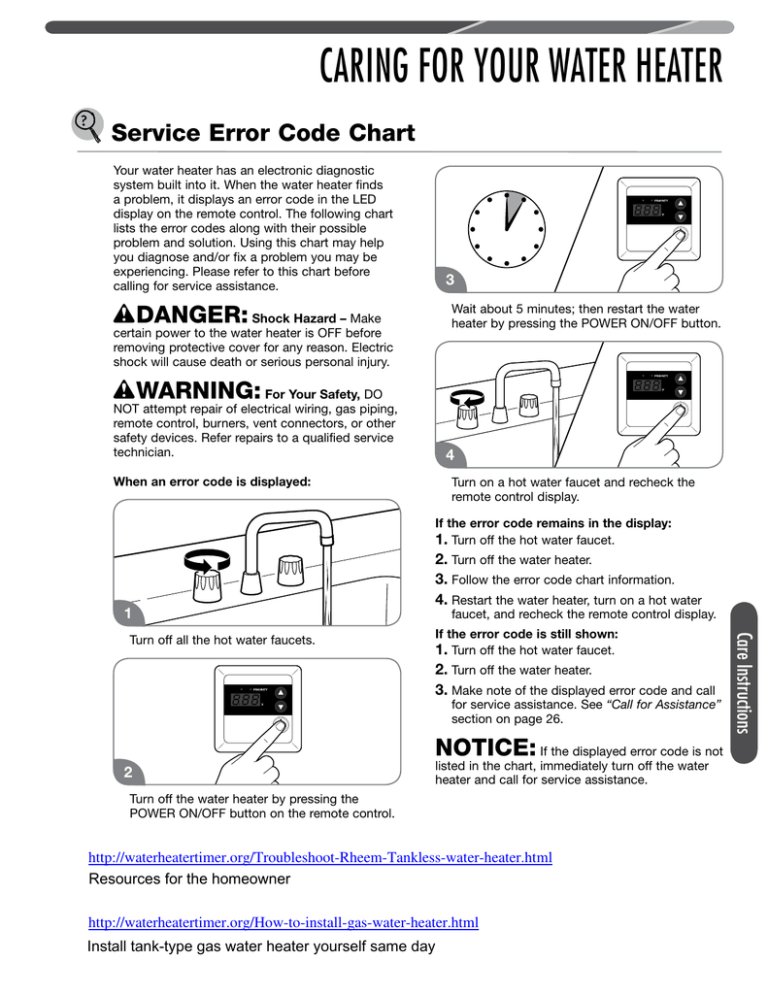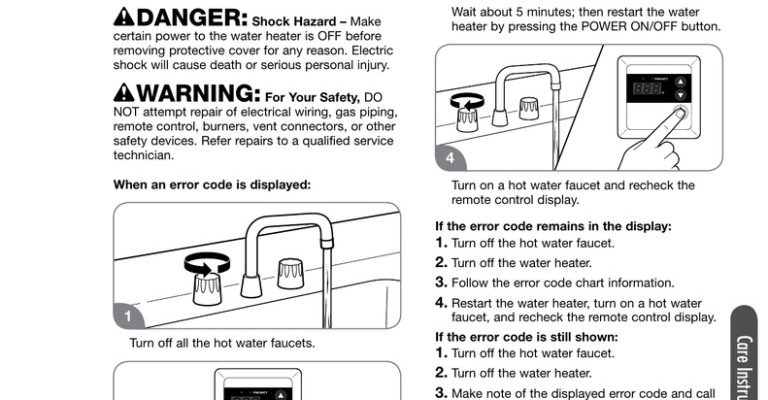
Imagine expecting a soothing warm shower only to find a bewildering error message. It’s a lot like preparing your favorite recipe and suddenly realizing the oven isn’t heating up. Both situations throw a wrench in your plans! Error Code E3 isn’t just a random glitch; it’s like your Bosch water heater’s way of waving a red flag, telling you something’s amiss. While it might make you anxious, understanding this code can help you make informed decisions about safety and next steps.
Understanding Error Code E3 in Bosch Water Heaters
Seeing an error code pop up is akin to your water heater speaking a different language. But here’s the deal: Error Code E3 signifies a specific issue within your Bosch water heater, usually related to exhaust or intake air issues. Think of it as your heater having difficulty breathing. Just as you’d get someone to check on you if you couldn’t catch your breath, your water heater is signaling it needs a check-up.
This code commonly indicates problems with the air supply or venting system. Picture this: if the vents in your heater are like your nose, then Error Code E3 is basically saying they’re blocked. This could be due to debris, dust, or even an internal malfunction. When these pathways are obstructed, the heater struggles to maintain its efficiency, much like trying to run a marathon with a stuffy nose.
Before you start to worry, remember that manufacturers design these codes to help you maintain your appliances safely. Ignoring the issue isn’t advisable, just as you wouldn’t continue driving a car with the check engine light on. While it’s tempting to push through, addressing the problem head-on ensures both safety and longevity for your heater.
Is It Safe to Continue Using the Heater?
Now, you might be wondering if it’s okay to keep using the heater despite the warning. The short answer is: it’s best not to. Using your Bosch water heater with an unresolved Error Code E3 might not only worsen the problem but also potentially lead to safety risks. Imagine running on a sprained ankle; it might seem manageable, but it could cause further damage.
Using a malfunctioning unit could lead to poor combustion, creating carbon monoxide—a colorless and odorless gas that’s hazardous to health. That’s like having a silent but dangerous guest at your dinner table. It’s a situation no one wants to risk, and that’s why it’s crucial to tackle the issue immediately.
Moreover, continuing to use the heater without addressing the error might strain the unit, leading to costlier repairs down the line. It’s like ignoring a small leak in your roof; eventually, it can result in significant damage. So, while it might seem inconvenient to halt your hot water supply, it’s a precaution that pays off in the long run.
Steps to Take When You See Error Code E3
So, what’s next? First things first, turn off the water heater to prevent further issues. Just like putting a halt to a leaky faucet, stopping the flow is critical. Then, consult your user manual. It’s your best friend in situations like this, offering specific guidance tailored to your model. If the manual seems daunting, don’t fret. It’s usually structured to walk you through troubleshooting in a step-by-step manner.
Next, inspect the vent pipes and air inlets. Ensure they’re free of obstructions. Cleaning out dust and debris could be as effective as clearing a blocked sink, allowing everything to flow smoothly again. However, if you’re unsure or uncomfortable doing this, contacting a professional technician is the way to go. They’re trained to diagnose and fix these issues safely and efficiently.
After addressing the immediate concern, it’s wise to test the system to see if the error resolves. If it persists, reaching out to Bosch support or a certified technician is advisable. Think of it like seeking a second opinion from a doctor—it’s always better to be safe and sure.
Preventing Future Error Codes
Prevention is always more manageable than dealing with recurring problems. Regular maintenance of your Bosch water heater is like regular health check-ups—it can catch potential issues before they escalate. Schedule periodic inspections and cleaning of vents and components to ensure they’re in top condition.
Consider placing your heater in a location free from dust and external elements that might cause clogs. It’s similar to planting a garden in fertile soil; the environment influences its success. Keeping the surrounding area clean enhances the unit’s performance and extends its lifespan.
Lastly, familiarize yourself with the common error codes and what they mean. Understanding these can help you act quickly, much like learning basic first-aid can assist in handling emergencies efficiently. Being proactive with maintenance and knowledge saves time, money, and stress over the life of your appliance.
Remember, while Error Code E3 might seem daunting initially, it’s simply your system’s way of asking for some attention. By understanding and addressing it properly, you ensure both safety and comfort in the long run.
